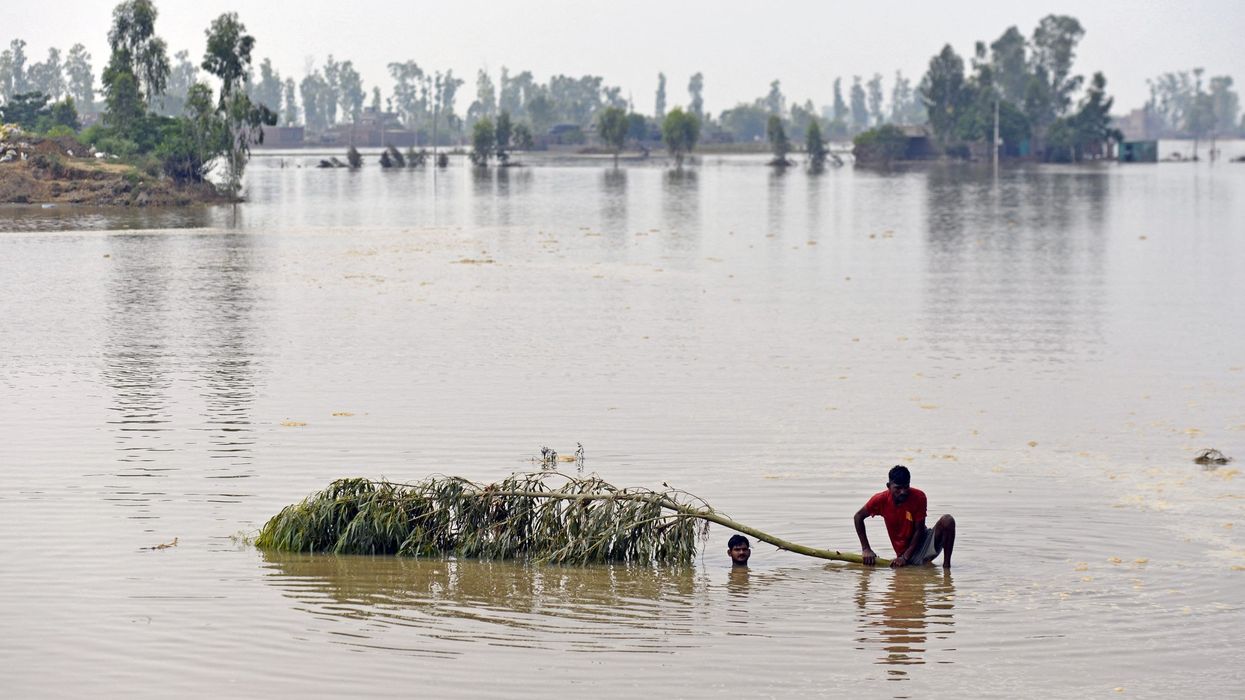AN Indian citizen, who was swept into Pakistan by floodwaters of the river Sutlej has been handed over to an intelligence agency, officials in Pakistan's Punjab province said on Wednesday (26). "The Indian national who is in his 50s is deaf and communicates through sign language. He said he is a Hindu and the floodwater swept him here," a Rescue 1122 spokesperson said in Lahore.
The man swept into Pakistan from the floodwater of the Sutlej near Ganda Singh Wala, Kasur district of Punjab, some 70 km from Lahore, on Tuesday, the spokesperson said.
After his medical examination, the man has been handed over to an intelligence agency for investigation.
Adjoining low-lying areas of Ganda Singh Wala were affected by the low-level flooding at Ganda Singh Wala in Sutlej River recently.
The flood in river Chenab in the past week inundated 40 villages and localities in the district due to which over 48,000 people were affected, according to the Punjab government.
(PTI)
Indian man swept by floodwaters into Pakistan in intelligence agency custody
‘The Indian national who is in his 50s is deaf and communicates through sign language’, a Rescue 1122 spokesperson said in Lahore




